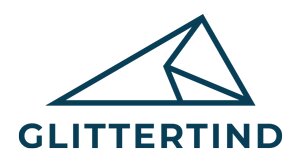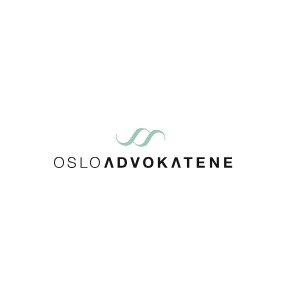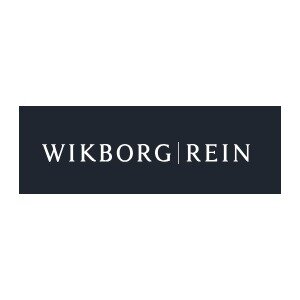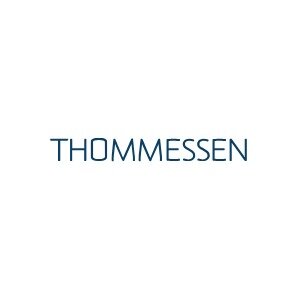Best Energy Regulatory Law Lawyers in Oslo
Share your needs with us, get contacted by law firms.
Free. Takes 2 min.
List of the best lawyers in Oslo, Norway
About Energy Regulatory Law in Oslo, Norway
Energy Regulatory Law in Oslo, Norway, encompasses the legal framework that governs the generation, transmission, distribution, and consumption of energy. This field covers various energy sources including electricity, gas, oil, and renewables. In Oslo, as in all of Norway, energy law is shaped by both national regulation and European Union (EU) directives, given Norway's participation in the European Economic Area (EEA). The primary aim of Energy Regulatory Law is to ensure efficient energy markets, environmental sustainability, fair competition, and consumer protection. The Norwegian Energy Regulatory Authority (NVE-RME) plays a critical role in monitoring and enforcing these regulations.
Why You May Need a Lawyer
There are several situations in which you might require help from a lawyer specializing in Energy Regulatory Law in Oslo. Common scenarios include:
- Navigating complex licensing processes for energy production or transmission
- Interpreting the implications of new or existing energy regulations for your business
- Resolving disputes concerning energy contracts, tariffs, or compliance issues
- Understanding land use issues related to energy infrastructure development
- Addressing environmental compliance and sustainability requirements
- Advice on renewable energy initiatives and investments
- Dealing with cross-border energy transactions and EU regulations
- Advising on the impact of government policies on your energy project or company
An experienced energy law attorney can guide you through local and international legal complexities, help you avoid costly mistakes, and represent your interests in negotiations or disputes.
Local Laws Overview
Norway's energy sector is highly regulated to promote both energy security and environmental responsibility. Key aspects of Energy Regulatory Law relevant in Oslo include:
- The Energy Act (Energiloven): Sets the legal framework for the production, conversion, transmission, trading, distribution, and use of energy.
- Water Resources Act: Regulates the use and management of Norway's significant hydropower resources.
- Electricity Certificates Act: Provides incentives for renewable energy production.
- EU and EEA regulations: Norway implements many EU energy market and competition rules through its EEA membership, particularly the EU’s third energy package.
- Licensing and Concessions: Most energy-related activities require licenses or concessions granted by the authorities, especially for construction and operation of power plants, transmission networks, and significant energy projects.
- Market Regulation: The authorities oversee fair competition, tariff setting, and consumer rights within the energy market.
Municipal authorities in Oslo may also set specific requirements for energy use and environmental standards, especially for urban projects and green initiatives.
Frequently Asked Questions
What is the role of the Norwegian Water Resources and Energy Directorate (NVE) in energy regulation?
NVE supervises the regulation of Norway's energy and water resources. It grants licenses, monitors compliance, and enforces laws related to all aspects of energy production and distribution, including safety and environmental impact.
Do I need a license to produce electricity in Oslo?
Yes, most forms of electricity production, such as hydropower, wind, and solar installations above certain thresholds, require licensing from national authorities and sometimes the municipality.
Can foreign companies invest in Norway’s energy sector?
Yes, foreign investment is generally welcomed, but companies must comply with Norwegian and EEA regulations, including licensing and ownership restrictions in some cases.
What are the environmental requirements for energy projects?
Energy projects must comply with strict environmental regulations, including impact assessments, public consultations, and often special sustainability standards for renewable energy sources.
How are energy tariffs set in Norway?
Tariffs for connecting to and using the energy grid are regulated by RME to ensure fair pricing and prevent abuse of market power. Disputes can be taken to the regulator or courts.
Is Norway’s energy market open to competition?
Yes, the energy market is liberalized and there is competition among energy producers and suppliers, though the transmission and distribution networks remain regulated monopolies.
What consumer protections exist for energy customers in Oslo?
Consumers are protected through fair pricing rules, the right to switch energy providers, clear information obligations on contracts, and support from ombudsman schemes for dispute resolution.
How do EU laws impact Energy Regulatory Law in Norway?
Via the EEA agreement, Norway implements most EU regulations on energy markets, competition, and climate policy, ensuring harmonization with the EU’s single energy market.
What are electricity certificates and how do they work?
Electricity certificates are a market-based mechanism to promote renewable energy. Producers of green electricity receive certificates they can sell, supporting investment in renewables.
What should I do if I am in a dispute with my energy supplier?
Start by contacting the supplier to resolve the issue. If unresolved, you can seek help from the Norwegian Electricity Appeal Board (Elklagenemnda) or engage a legal expert specializing in energy law.
Additional Resources
Those needing further information or assistance can consult:
- Norwegian Water Resources and Energy Directorate (NVE): The primary regulatory authority for energy and water resources
- Norwegian Energy Regulatory Authority (RME): Regulates grid operations and ensures fair energy markets
- The Ministry of Petroleum and Energy: Responsible for national energy policy
- Norwegian Competition Authority: Monitors anti-competitive practices in the energy sector
- Norwegian Electricity Appeal Board (Elklagenemnda): Handles complaints from energy consumers
- Local law firms in Oslo: Many firms have specialists in energy, environmental, and regulatory law
- Energy Norway: An industry organization providing market, regulatory, and policy updates
Next Steps
If you believe you need legal assistance concerning Energy Regulatory Law in Oslo, take the following steps:
- Identify your specific issue or question, and gather relevant documentation such as contracts, correspondence, and licenses.
- Consider contacting the relevant regulatory authority for guidance on straightforward questions or public information.
- Consult with a lawyer or law firm specializing in energy regulatory matters. Be clear about your objectives and ask about their experience with similar cases.
- Discuss costs and expected timelines with your lawyer before proceeding.
- If you are an energy consumer, make use of ombudsman or appeal bodies for dispute resolution if appropriate before escalating to formal legal proceedings.
- Stay informed about any regulatory changes that might affect your case, especially due to ongoing updates to EU and Norwegian laws.
Seeking professional legal advice ensures your rights are protected and helps you navigate the complex regulatory environment effectively.
Lawzana helps you find the best lawyers and law firms in Oslo through a curated and pre-screened list of qualified legal professionals. Our platform offers rankings and detailed profiles of attorneys and law firms, allowing you to compare based on practice areas, including Energy Regulatory Law, experience, and client feedback.
Each profile includes a description of the firm's areas of practice, client reviews, team members and partners, year of establishment, spoken languages, office locations, contact information, social media presence, and any published articles or resources. Most firms on our platform speak English and are experienced in both local and international legal matters.
Get a quote from top-rated law firms in Oslo, Norway — quickly, securely, and without unnecessary hassle.
Disclaimer:
The information provided on this page is for general informational purposes only and does not constitute legal advice. While we strive to ensure the accuracy and relevance of the content, legal information may change over time, and interpretations of the law can vary. You should always consult with a qualified legal professional for advice specific to your situation.
We disclaim all liability for actions taken or not taken based on the content of this page. If you believe any information is incorrect or outdated, please contact us, and we will review and update it where appropriate.

















